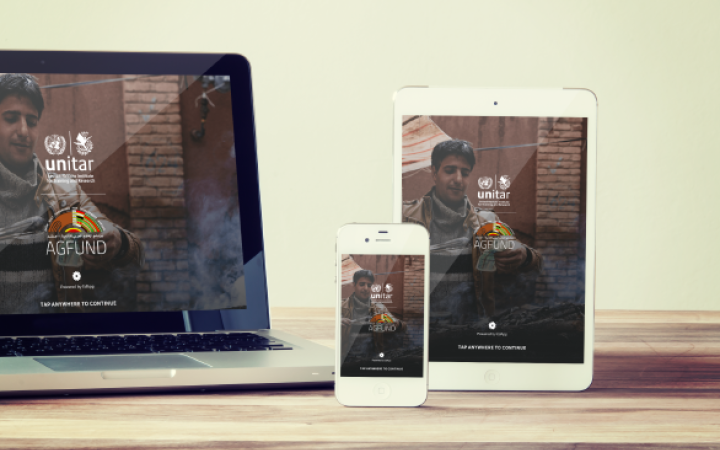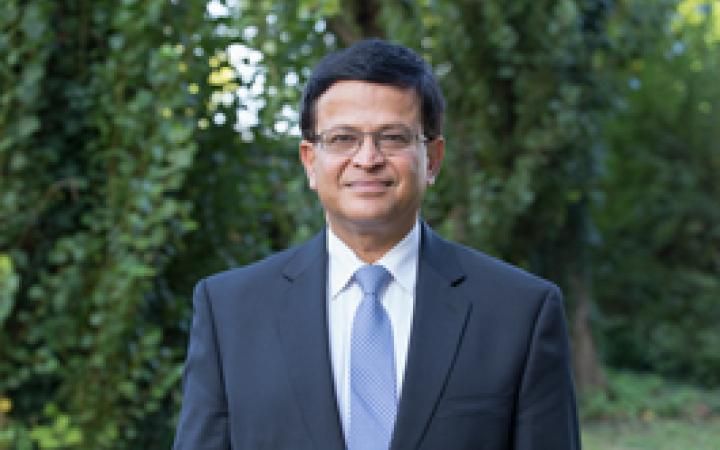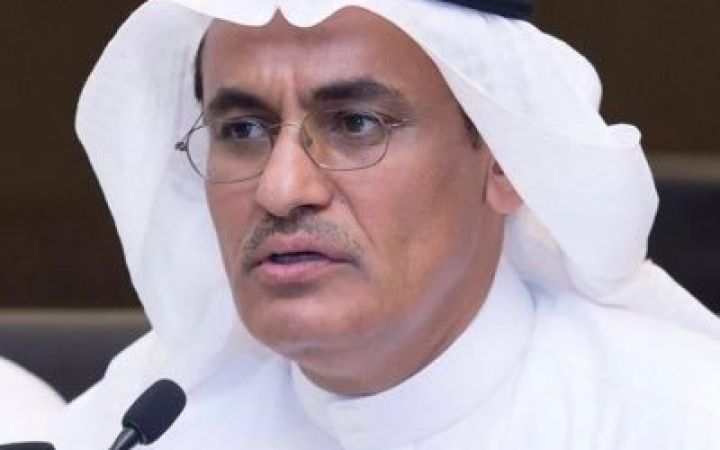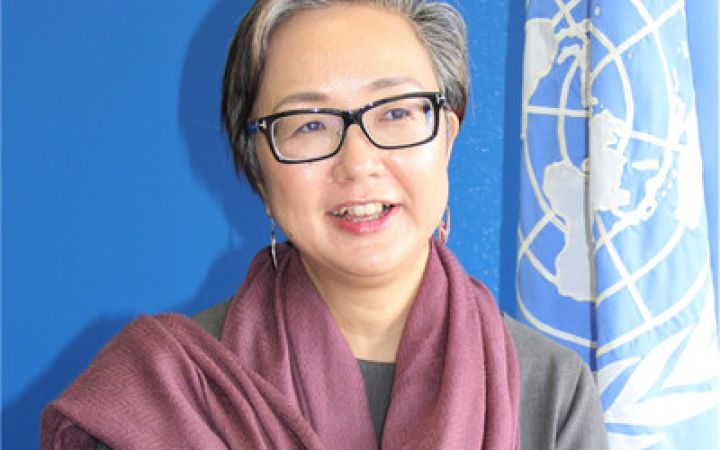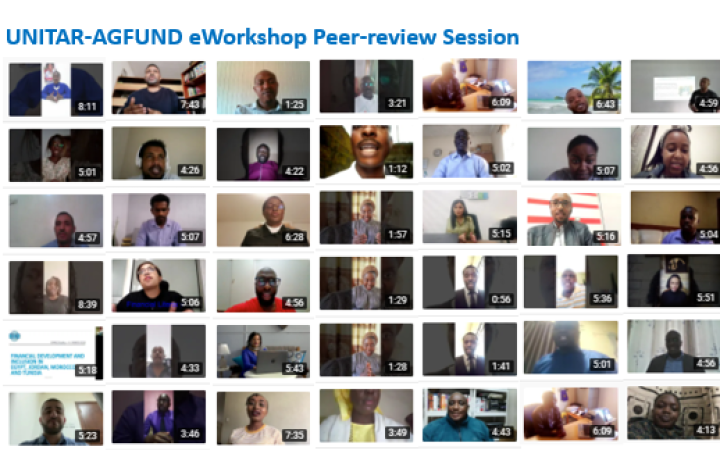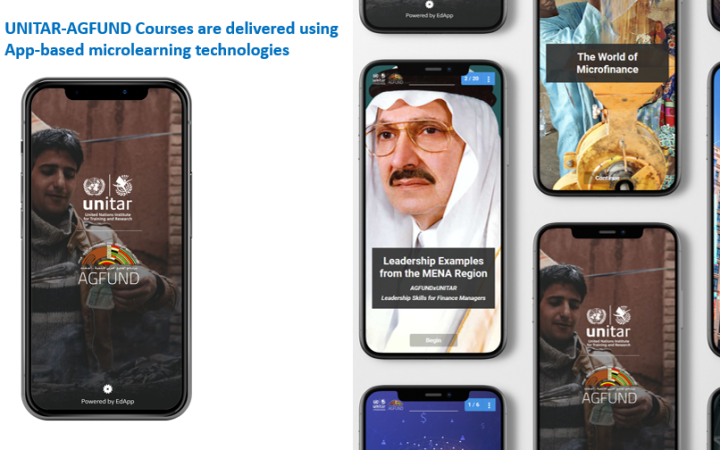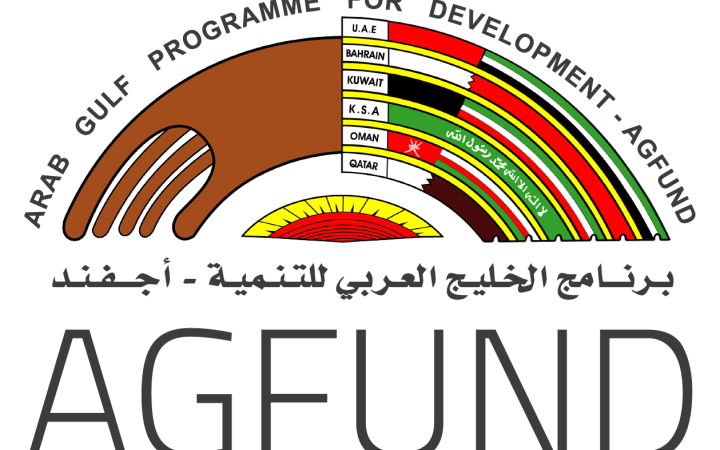30 July 2021, Geneva, Switzerland - A training programmes on microfinance and financial inclusion run jointly by the United Nations Institute for Training and Research (UNITAR) Division for Prosperity and the Arab Gulf Program for Development (AGFUND) was initially aimed at a few hundred staff from banks and microfinance bodies in the Middle East and Africa. But not only did it receive many more applications than expected from the target areas, it also attracted thousands from the wider finance and development sector from 108 countries.
Globally, there are more than 500 million “economically active but poor” people operating microenterprises and small businesses, says the World Bank, but most of them do not have access to financial services, particularly, microfinance. Microfinance has been proven to help people work themselves out of poverty but for a whole lot of reasons — one being a lack of trained operators — it is not widespread.
UNITAR, in partnership with AGFUND, had set out to fill this gap through modules delivered to trainees’ smartphones, which they could access when and where they wanted, along with live coaching sessions, also delivered by smartphone.
Harnessing digital technologies to deliver training during the pandemic
“During these unprecedented times caused by COVID-19, UNITAR is doubling its efforts in working with partners like AGFUND by harnessing digital technologies in bringing its training and capacity development initiatives to a wider audience and to benefit from its multiplier effects,” said Nikhil Seth, Executive Director of UNITAR, in his video message to the training programme’s participants.
The global lockdown and restricted movement caused by the COVID-19 pandemic led to the focus on entirely virtual delivery, which also required modification of training methodologies and use of specialized information and communication technologies. This was a blessing in disguise, because all the training courses attracted such high demand that UNITAR and AGFUND decided to widen the scope to provide sharing of experience and lessons learned among the trainees themselves, which also gave them greater opportunity to network with their peers globally. This would have been very difficult to achieve if the training required the physical presence of participants at a given location.
AGFUND taking action to support the 2030 Agenda for Sustainable Development
For AGFUND, the training supports one of their main goals: financial inclusion in the developing world. It already has a network of microfinance banks that design financial products and services to meet the specific needs of the poor, empowering disadvantaged people to become positive contributors in their communities.
“There's a great consensus among different stakeholders that financial inclusion plays an important role in achieving the 2030 Agenda for Sustainable Development,” said Nasser Alkahtani, Executive Director of AGFUND. “AGFUND, through its partnership with UNITAR, has reached a global audience of development practitioners in imparting this critical knowledge on financial inclusion.”
The impact on trainees has been remarkable and, clearly, much needed and much appreciated.
“We in Yemen are in desperate need of developing and expanding microfinance as a result of the fragile economic conditions, with most of the population below the poverty line,” said Fadel (not his real name; names of trainees have been changed for privacy reasons). “The microfinance industry will be a good development in my country to reduce poverty and support the needs of the people. I have experience in banking and now I am looking to move into microfinance because my country desperately needs it.”
UNITAR-AGFUND Partnership provides strong foundation for Sustainable Prosperity
The strong alignment to the Sustainable Development Goals of both AGFUND and UNITAR's vision gave a solid foundation for the training programme and also for any future joint activities.
“AGFUND and UNITAR together can accelerate and scale-up sustainable development, leaving no one behind, ensuring our mutual initiatives reach into under-serviced areas first,” said Mihoko Kumamoto, Director of UNITAR’s Division for Prosperity.
Financial Inclusion is seen as a key enabling factor in achieving the Sustainable Development Goals, helping to eradicate poverty; promote economic growth, employment and opportunities for micro-, small- and medium-sized enterprises; improve gender inequality; end hunger and achieve food security; and promote health and well-being.
Inspiring and Empowering local development practitioners through contextualized training
“The Fundamentals of Microfinance course unveiled key issues of microfinance,” said Titus, a trainee from Liberia, “including how to design microfinance products, financial analysis and performance measurement of microfinance. The course exposed me to in-depth orientation on which prudential regulations set the enabling environment for microfinance institutions to flourish.”
He explained further that in his work as an agricultural economist, researcher and aspiring entrepreneur, the concepts gained from the course would help him design products and research in the financial sector of Liberia, where poverty is “alarming”.
“Agricultural credits are key factors that can be used to empower farmers to acquire inputs and to add value to their crops and to the value chain,” he said. “Also, enterprise and social development services are needed in many rural parts of Liberia to empower youths away from carefree and hostile living conditions. As a researcher, the course empowered me with the key indicators for performance measurement. In Liberia, financial inclusion has been introduced by telecommunication providers, however, there has not been an empirical assessment of the industry performance or of the productivity and efficiency of the few microfinance institutions. I am planning to venture into such research projects and with the performance indicators learned from this course I am confident that such research will contribute to inform local decision makers.”
“This course was a real eye-opener to me,” said John of Kenya. “I learnt new concepts which are very handy in the exercise of my job-related tasks. I am now able to understand the whole concept of microfinance in a new way. I will train my colleagues at the workplace and the 61,000 groups my organization deals with. Many do not understand the concept and only practice what is popularly called ‘merry-go-round’ and no business enterprises. I will be able to help many small enterprises.”
The training’s networking component immediately inspired some participants.
“From the course, we — I along with two other course participants — have decided to collaborate and assess the impact of financial inclusion in Nigeria and Liberia,” said Titus of Liberia. “I think that through this course, this collaboration will steam into a life-long relationship of research, business, and professional improvement.”
Such comments reveal how a timely, well-thought-out program delivered in ways that people want by experts in the field, can start a splash that can ripple around the world.
The section of the training dealing with Leadership stresses that leadership is “the ability to create an environment where everyone knows what contribution is expected and feels totally committed to doing a great job”. This is an essential and complex skill — combining a range of keen psychological insights and motivational techniques suited to each unique individual — that is much more than simply management. Leadership is the “art of getting people to move together towards a goal that they don't see yet”, write the trainers.
“It was an amazing experience that was both knowledgeable and informative,” said Adimu of Kenya. “With the knowledge gained from this course, I believe I will be able to fully comprehend the microfinance concept and all financial services offered under it, the need of financial intermediation, especially to the poor within the society. I intend to apply all what I've learnt from this course within our local ‘chamas’ (self-help savings and loans societies), of which I am part. Through these chamas, provision of financial services and access has been improved especially to women within the society. Therefore, through the knowledge learned from this course, I will be able to understand and facilitate in the growth of these local groups.”
Participants were eventually drawn from a wide range of backgrounds, including legal, financial, microfinance, auditing, banking, entrepreneurial, academic, United Nations, anti-corruption and money laundering, and savings and loans.
Reaching out to underserviced areas first, Globally
The training programme, delivered from May through to December 2020, was designed from two separate initiatives: Providing Technical Support for AGFUND Microfinance Unit; and Capacity Building and Technical Support for Financial Inclusion in Sub-Saharan Africa. It was specifically aimed to help participants learn about sustainable microfinance principles and good practices as applied by institutions today, with a comprehensive overview of the fundamentals for implementation, evaluation and management. The courses covered Fundamentals of Microfinance, Leadership Skills for Finance Managers, Fundamentals of the Financial System, and Negotiation of Financial Transactions. A virtual workshop on Training of Trainers on Financial Inclusion was an opportunity to increase the scale of microfinance in participants’ countries by training others in their organizations and beyond.
More than 1,200 people completed the programme, 33% of whom were women, from 108 countries, including 15 in the Middle East and North Africa region and 43 in Sub-Saharan Africa.
With maximum flexibility for learning anytime, anywhere, using micro-learning tools delivered directly to their smartphones, the hundreds of participants in the programme also had access to world-leading international experts who moderated discussions. They could also network with other officials as well as peer-review their work, sharing their knowledge and experience with one another to build a collective awareness of innovative and sustainable approaches that foster financial inclusion.
LEARN MORE ABOUT THE AGFUND-UNITAR IMPACT STORIES
Below are the Impact Stories of our beneficiaries taken through interviews six months after completion of the training activities. The Impact Story Initiative aims to spotlight how our learners have applied new knowledge and skills following the delivery of training. By using a variety of quantitative and qualitative methods, these stories are an evaluative tool to find the impact of our training, examining whether individual, organizational or even wider change has taken place.
PROSPERITY - ENHANCING CAPACITIES ON FINANCIAL INCLUSION THROUGH ONLINE COURSES (Focus on Expert-facilitated Online Courses)
https://unitar.org/about/news-stories/stories/prosperity-enhancing-capacities-financial-inclusion-through-online-courses
PROSPERITY - TRAINING PROFESSIONALS ON FINANCIAL INCLUSION AND SUSTAINABLE DEVELOPMENT (Focus on Expert-facilitated eWorkshops)
https://www.unitar.org/about/news-stories/stories/prosperity-training-professionals-financial-inclusion-and-sustainable-development
ABOUT AGFUND
The Arab Gulf Programme for Development (AGFUND) is a regional organization, established in 1980 by the initiative of His Royal Highness the late Prince Talal bin Abdulaziz and the support of the leaders of the Gulf Cooperation Council. AGFUND aims at the roots of human development problems, targeting all segments of society without discrimination. For more information about AGFUND, please see: www.agfund.org


